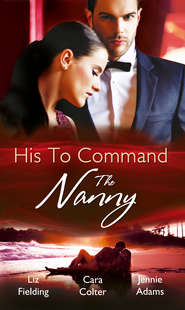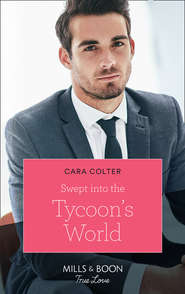По всем вопросам обращайтесь на: info@litportal.ru
(©) 2003-2024.
✖
Meet Me Under the Mistletoe
Автор
Год написания книги
2018
Настройки чтения
Размер шрифта
Высота строк
Поля
And it really, until this phone call, had looked like she might never have to.
“Isn’t someone coming to look at it tomorrow?” she reminded Mr. Dewey. “A potential buyer?” She didn’t add finally. “If you could just hang on until the showing, give me a chance to find someone else to manage it, I would be most appreciative—”
“Have a listen to this.” A terrible noise came over the phone line: the screeching of tires and blaring of horns.
“What on earth?”
“It’s that damn pony. Evil, she is. She’s out on the road again. I’m done. I’m done with the midget horse, I’m done with people knocking on my cottage door day and night demanding trees and wreaths and sleigh rides. I’m done with all the ho-ho-ho and merriment. I hate it all, and the dwarf horse, Molly, the most.”
Really, he was summing up the way Hanna herself had often felt growing up on the Christmas tree farm. But that feeling of being exhausted and fed up and one hundred percent done with all things Christmas didn’t come at the beginning.
Her resentments—about all the work, and all the demands, and the elf costume, and her father’s new and inventive gimmicks to sell trees and wreaths—piled up by the end of the frantic weeks leading to Christmas.
“Mr. Dewey,” Hanna said tentatively, “Have you been drinking?”
“I have, but not nearly as much as I plan to be.”
And with that, the phone went dead in Hanna’s hands. She called back instantly—surely he didn’t intend to leave Molly in the middle of the highway—but Mr. Dewey did not pick up.
She sat at her desk for a moment, completely paralyzed. A horse loose on the highway. And no manager on the farm’s best—well, only—twenty-four income-earning days?
The farm’s profits had dwindled over the past decade, but still rose in Hanna’s throat when she thought of trying to meet those expenses herself.
The place had to sell. It was more imperative now than ever. She would have to meet the buyer tomorrow herself. Maybe that would be a good thing. She couldn’t imagine Mr. Dewey, in his current frame of mind, doing the best job of presenting the farm for sale.
Then what? Hanna asked herself. She could not take the weeks until Christmas off work. She forced herself to breathe.
One thing at a time.
It was a two-hour drive to the farm in upstate New York. The cantankerous Molly could well be dead by the time Hanna reached there.
Hanna had the uncharitable thought—one she was sure she shared with Mr. Dewey—that Molly’s demise could be nothing but a blessing. Maybe, if the pony was gone, he could even be convinced to come back to work.
It was a mark of her desperation that she would want him back.
But, right now, she had other worries. One thing working in a huge accounting firm had taught her?
Liability, liability, liability.
“I’m so sorry,” Hanna stammered to Mr. Banks, a few minutes later, “I have to leave. Family emergency.” This was, technically, not quite true, as she no longer had a family.
Or, she reminded herself sadly, any hope of one. Her fiancé, Darren, had broken off their engagement not a month after the death of her mom.
Not that she wanted to be thinking of that right now. She had the immediate problem of a pony in the middle of the road just waiting to rain lawsuits into her life.
Mr. Banks did not look the least sympathetic. He pulled his glasses down on his nose and looked disapprovingly over the tops of them at her.
Since the end of her relationship, Hanna had been putting in twelve-and fourteen-hour days. Her work had been filling all the spaces in her life, and quite satisfactorily, too.
She had become Mr. Banks’s darling, and she knew she was, at the moment, his first choice for the promotion coming up.
“How long will you be gone?” he asked sharply.
“Twenty-four hours,” Hanna said rashly.
He considered this, and then sighed as if she was a big disappointment to him. “Not a minute more,” he said sternly.
Her promotion now seemed to be in at least as much danger as Molly on the highway!
Her life, just a few months ago, had felt so comfortably solid, as though her future was chiseled in stone. Advancing nicely in her job, planning her wedding...but now everything seemed to be the way she hated it the most: totally up in the air.
* * *
Sam Chisholm turned his wipers on a higher speed as the fat snowflakes plopped on his windshield and melted. The early winter storm was thickening. Snow was gathering heavily in the boughs of evergreen trees, and drifting in white mounds along the road.
This part of rural upstate New York was Christmas-card–pretty, and the storm, despite presenting some driving challenges, was only adding to the charm of the picture.
Rolling hills were frosted in thick white. Golden light spilled out of farmhouse windows, casting shadows on towering barns. Cows and horses were dark silhouettes against the snowy backdrop. Sam’s car passed over quaint bridges that crossed creeks as silver as Christmas-tree tinsel.
He knew this area of the country, but time had a way of changing things and he was beginning to wonder if he had missed the driveway.
There it was.
Christmas Valley Farm.
He’d almost passed right by it, and his shrewd businessman’s mind made note that the sign had faded, and it was not lit. He was no kind of expert on Christmas trees—or Christmas for that matter—but presumably people might want to choose their tree in the evening. He glanced at his watch. The darkness of the night suggested midnight, but it was only eight o’clock.
Sam turned in sharply enough to feel his car skid a touch. There was a For Sale sign, even less visible and more faded than the farm sign. There were also fresh tire tracks through the snow, and he could see where the other vehicle had fishtailed on the slippery ground.
He felt his own tires hesitate, trying to find purchase on the slick track. He had an appointment. He would have thought, in the interest of making a good impression—not to mention the convenience of customers doing early Christmas shopping—the drive would be plowed.
Suddenly, an apparition materialized on the drive to the right of him. A creature, gnomelike and hooded, hunched against the storm, led a fat pony toward the golden glow of a distant barn.
It was another Christmas-card–worthy picture, except that when it was caught in the sweep of his headlights, the pony started, and leapt onto the track in front of Sam’s vehicle. The gnome didn’t have the good sense to let go, and went to its knees, and was dragged along the ground.
Sam had been creeping along, but when he punched his brakes, he felt the car slide, then heard the sickening thump.
Sam slammed to full halt, and leaped from his vehicle and raced around the front. The gnome was on its knees, untouched by the vehicle, spitting out snow. A tubby, dun-colored pony with a scruffy black mane, snow caught in a shaggy coat, was nearly beneath his bumper.
It wagged its fur-and-snow-matted legs in the air, then grunted, and leapt to its feet. It gave him a look that appeared to be loaded with malice before it staggered to one side of the road and glared balefully back at them. Sam moved toward it, but the pony shuffled away, backing up one step for his every step forward.
“Don’t try and catch her—she’ll bolt,” the kneeling gnome said, in a surprisingly feminine voice.
The gnome was right. When he stopped, the pony stopped. He had more immediate things that needed his attention, anyway.
“Are you all right?” Sam dropped to his knees in the snowbank beside her. “Why on earth didn’t you let go when the damn thing bolted? It nearly dragged you right in front of the car!”
“If it hadn’t taken me an hour and half to catch her, I might have!”











